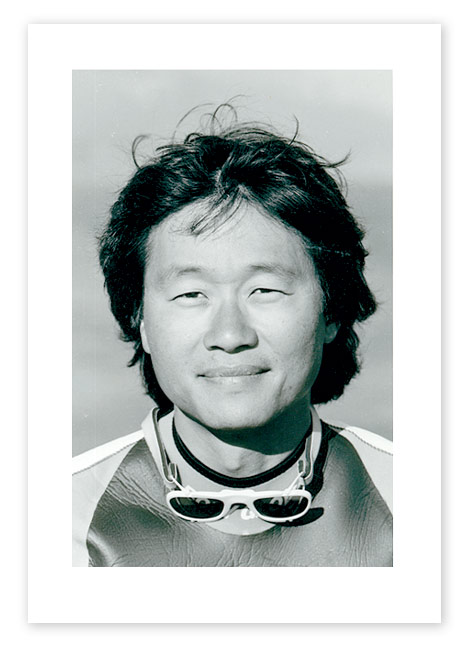 LIKE THE CYCLE OF LIFE in our human journey, windsurfing has a similar growth cycle. In this issue, the whole spectrum is represented.
LIKE THE CYCLE OF LIFE in our human journey, windsurfing has a similar growth cycle. In this issue, the whole spectrum is represented.
From the infant steps of beginners.
Like our cover babies trying their Mini-Bic for the first time or stories from Margarita, a new “beginner” windsurfing destination rising from the grip of the third world, to learn to windsurf requires a certain innocence.
To the mastery of legends.
Like Debbie Brown, a former pro windsurfer, who stood at the pinnacle of the sport, retired and found inner peace with her competitive and creative self.
Windsurfing refines the human experience.
To a beginner windsurfer struggling to understand the overwhelming disharmony between the forces of nature and our seemingly spastic human machinery, the act of windsurfing would appear to be an impossible task. But for those who persevere, the process of becoming a windsurfer follows a path which provides a perpetual series of challenges that opens or closes a door to the “right of passage” for the practitioner.
I’m getting heavy, huh? Bear with me.
“Had I known what I know now, I would never have done it” is something I could probably say about starting this magazine. To some, learning to windsurf provokes the same thought. Fortunately, however, the choices we make at the beginning stages of life are aided by our ignorance. Didn’t someone say “Ignorance is bliss?”
Indeed, some of the most profound achievements in life have come from people who didn’t know better not to do it. Like most of us who naively venture into windsurfing, because we didn’t know just how difficult it was. “Nobody is spared the struggle,” said a Boston executive who declared that “learning to windsurf is a humbling and miserable experience.” Speaking like a zen master who has seen the light after struggling for a week with minimal success, he also said, “Windsurfing takes time, energy and commitment.”
Yeah, yeah, money too!
The willingness to leave the shore, the securities and comforts of home, and to venture into the unknown for a new experience, is a remarkable gift. The ability to endure changes, adjust to trying and demanding conditions with a positive constructive attitude is another gift.
The ability to acknowledge the experience, awaken to its suggestions and redeem it for growth and the enhancement of the self is the final gift.
The gift of affirmation.
The story by Connie Winter entitled “Living by the Wind” is a refreshing reminder that life’s gifts come from one’s willingness to seek fulfillment. The idea that we can step out on faith and walk on water; that the thrills of life, the affirmations of life can come true once you’ve struggled, persisted and earned the “right of passage.”
The right to move on.
As we closed this issue, news of the passing of Baron Marcel Bic (Bich) came to us. The 79-year-old founding father of disposable pens, lighters, razors and the not-so-disposable windsurfers, claimed that one-day windsurfers will become the “bicycles of the sea.”
The Baron loved sailing and sustained a stubborn and obsessive 11-year quest for the America’s Cup, yachting’s most prestigious prize. His closest match was in 1980 after a 0-11 team record, France III survived the initial round-robin against England but lost to Australia in the semifinals.
The unattained quest for the America’s Cup was the Baron’s passion; his pride, joy, and strength. Meanwhile, his disposable BIC empire blossomed with reported worldwide sales of $1.1 billion and a profit of $70.5 million for 1993.
I guess good things don’t come easy.
Windsurfing is a good thing. It shouldn’t come easy.
— John Chao
Publisher/Editor

